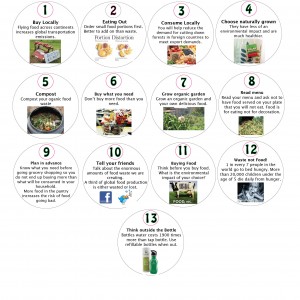Where: Jervis Bay
When: June 2013
Event: The Kiss – Jervis Bay will be coordinating an interactive event “Food for Thought” linking the 2013 theme of Food Waste.
Participants will be able to discuss 13 plates of thought on taking care to personally reduce Food Waste.
A survey “Left on the plate” will review the large quantity of salad and vegetables cafes and restaurants discard. Our review will hopefully assist local providers to rethink menu options to reduce food waste.
The Kiss – Jervis Bay will also be displaying and supplying compostable and biodegradable eco friendly products catering supplies as alternatives to support this zero waste event.
Think.Eat.Save is an anti-food waste and food loss campaign that encourages you to reduce your foodprint. According to the UN Food and Agriculture Organization (FAO), every year 1.3 billion tonnes of food is wasted. This is equivalent to the same amount produced in the whole of sub-Saharan Africa. At the same time, 1 in every 7 people in the world go to bed hungry and more than 20,000 children under the age of 5 die daily from hunger.
Given this enormous imbalance in lifestyles and the resultant devastating effects on the environment, this year’s theme – Think.Eat.Save – encourages you to become more aware of the environmental impact of the food choices you make and empowers you to make informed decisions.
While the planet is struggling to provide us with enough resources to sustain its 7 billion people (growing to 9 billion by 2050), FAO estimates that a third of global food production is either wasted or lost. Food waste is an enormous drain on natural resources and a contributor to negative environmental impacts.
This year’s campaign rallies you to take action from your home and then witness the power of collective decisions you and others have made to reduce food waste, save money, minimise the environmental impact of food production and force food production processes to become more efficient.
If food is wasted, it means that all the resources and inputs used in the production of all the food are also lost. For example, it takes about 1,000 litres of water to produce 1 litre of milk and about 16,000 litres goes into a cow’s food to make a hamburger. The resulting greenhouse gas emissions from the cows themselves, and throughout the food supply chain, all end up in vain when we waste food.
In fact, the global food production occupies 25% of all habitable land and is responsible for 70% of fresh water consumption, 80% of deforestation, and 30% of greenhouse gas emissions. It is the largest single driver of biodiversity loss and land-use change.
Making informed decision therefore means, for example, that you purposefully select foods that have less of an environmental impact, such as organic foods that do not use chemicals in the production process. Choosing to buy locally can also mean that foods are not flown halfway across the world and therefore limit emissions.
So think before you eat and help save our environment!
